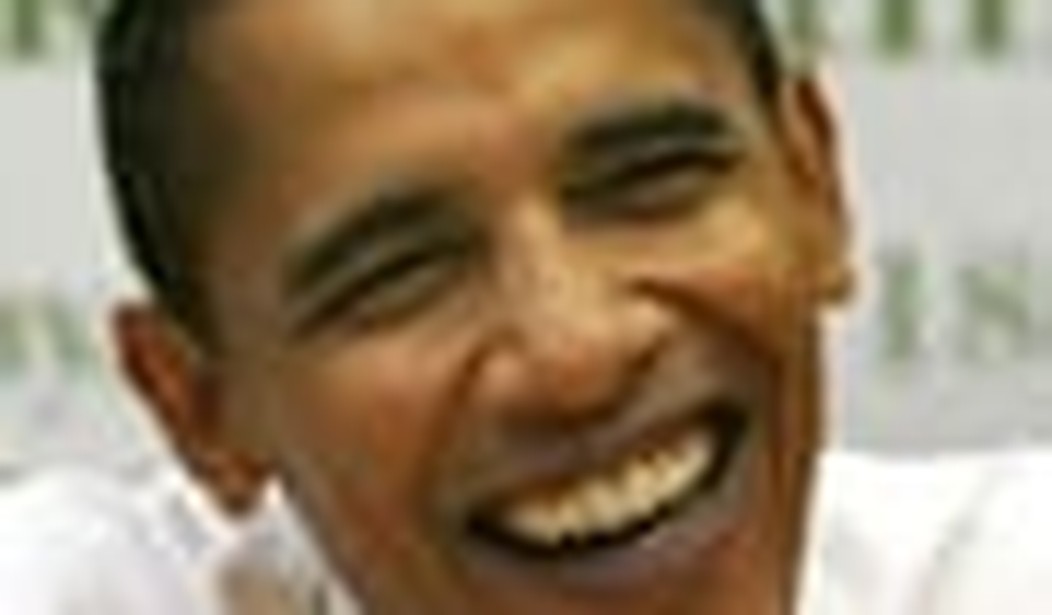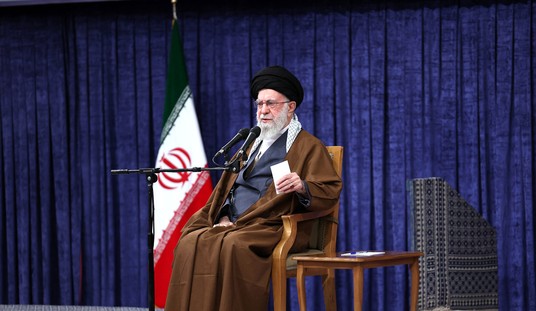What should someone who is passionate about E pluribus unum–who believes it is essential for America’s future that race have no place, that what Americans have in common must be embraced more than our diversity–think of Senator Obama’s candidacy?
First and foremost, the fact that an African-American candidate should be so popular, and should run a campaign that is racially undivisive and positive, is wonderful. Obama has rejected identity politics; true, he had to if he was to succeed; still, he did. The whites and other nonblacks voting for him have as well; his black supporters may not have, but it’s unrealistic to expect them to ignore Obama’s race, and he has not run as “their” candidate.
This does not mean, incidentally, that Geraldine Ferraro was incorrect in her observation that, were he not black, he would not be the Democratic front-runner.
It is almost inconceivable that a white male who, a little more than three years ago, was a state legislator with no national or international credentials, would–by dint of speechmaking ability alone–be poised to win his party’s nomination. But the point is that Obama did not ask for this adulation because of his race, even if race in part explains it.
Indeed, the fact that Obama has been so successful undercuts, perhaps decisively, the premise of the whole grievance industry: that America is racist, that black people cannot succeed, and that the ideal of E pluribus unum is an unrealistic one for the foreseeable future. Instead, the Obama candidacy shows that, for all with eyes to see, the future is now.
I’m nervous, though, about the fact that the candidate is a Democrat, and beholden to a party and special interests whose stock in trade is the identity politics and grievance mongering that are anathema to E pluribus unum. And it is not all clear that, once president, Obama himself will really want to be other than the conventional liberal that, when all is said and done, he is–meaning that he will embrace racial preferences and set-asides, and reject efforts to promote assimilation.
But the dynamics of the campaign will, precisely because Obama (an African American and the son of an immigrant) is a candidate, force discussion of what E pluribus unum means in 2008. The issue will be even harder to ignore given the fact that referenda banning racial preferences will probably be on the ballot in five states (Arizona, Colorado, Missouri, Nebraska, and Oklahoma), so that the candidates will be asked about the issue there, if nowhere else; and given the fact that immigration is much on voters’ minds as well this year.
If these issues are discussed, the anti-preference/pro-assimilation side wins. The overwhelming majority of Americans, of all races, dislike racial preferences and believe in E pluribus unum. Obama will know that, if he equivocates while John McCain is insisting on equal treatment and assimilation, then he will lose. It may not be fair if voters are especially nervous about how an African-American named Barack Hussein Obama comes down on these issues, but life’s not fair.
Senator Obama, an intelligent man, understands this. He has already indicated in his campaign that he is not comfortable endorsing racial preferences–that he would much prefer to endorse wealth-based, rather than race-based, affirmative action. He has conceded that his own daughters don’t deserve preferential treatment because of their skin color, and of course he is right.
If he’s really intelligent, he will do preemptively what many commentators, across the political spectrum —Mickey Kaus, Richard Kahlenberg, Terry Eastland— have urged him to do: announce his opposition to racial preferences, and urge that instead the poor and disadvantaged, but of all colors, be the focus of remedial programs. And he will acknowledge that it is the principle of E pluribus unum, and not identity politics, that best lights the way to success for all immigrants and their children, as indeed it has for him.
P.S. As more comes out about Senator Obama’s ties to his pastor, the Rev. Jeremiah Wright-that is, that those ties are closer and the pastor’s views more divisive than most folks had known up to now-the more sense it makes for Obama to reassure voters that he does indeed reject identity politics and policies that divide rather than unite Americans. In fact, it becomes not only desirable, but essential.
Roger Clegg is president of the Center for Equal Opportunity in Falls Church, Virginia.









Join the conversation as a VIP Member